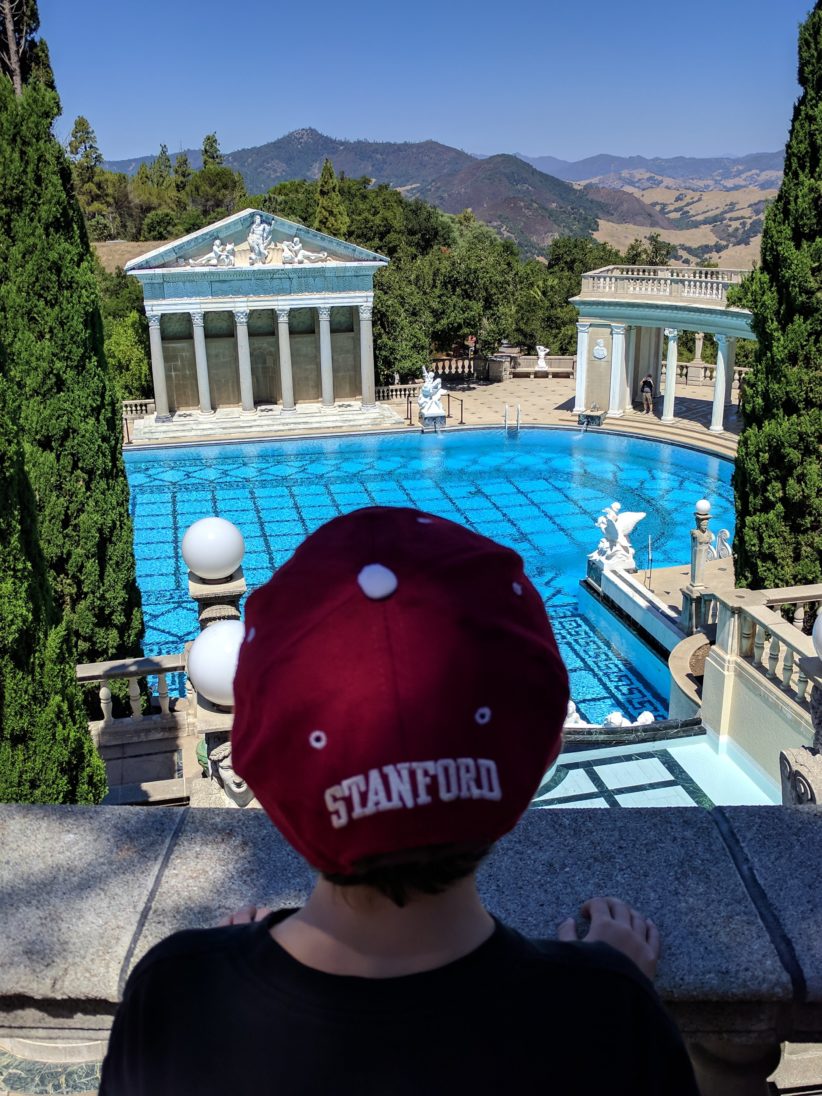My parents are immigrants. Both learned English as a second language.
This naturally leads to moments where a specific heartfelt sentiment takes an unexpected turn as the mental prose is converted from one language to another with an incomplete grasp of the subtleties of the non-native vocabulary.
Dad studied electrical engineering but pursued a career in business. Consequently his technical vocabulary is precise, and he often peppers his casual conversation with unusual word choices.
Fast forward to the past weekend, when my mom threw Dad a 75th birthday party that drew 40 local friends. While they expressed surprise at the quantity of fragile memories, walkers and wheelchairs that now constitute their peers, it was more than counterbalanced with an abiding sense of gratitude.
Shortly after they were married, my Dad was diagnosed with non-Hodgkins' lymphoma. It happened less than a year before I was born. It was the early 1970s and newly effective treatments were being pioneered at academic medical centers.
Although my parents lived in Southern California at the time, my father was referred to an oncologist at Stanford to devise a course of chemotherapy and radiation treatments that would be implemented closer to home at Cedars-Sinai Hospital in Los Angeles.
Mom recalls arriving for one of his Stanford appointments newly pregnant with me, and being pulled aside by the oncologist. He thought it his duty to let her to know there was a real possibility that the child she carried might not grow up with a father.
Interesting coincidence#1: Decades later, 3 of his 4 children and his 2 nieces would attend Stanford as undergraduates.
Interesting coincidence #2: As a resident in emergency medicine, I rotated through Cedars-Sinai Hospital. I sought out the beloved radiation oncologist my father had recalled as a bastion of encouragement during his illness.
He confided a sense of wonder that my medical education had brought me to the hospital that helped to save my father's life. He called my dad after our meeting and they had a long and wonderful opportunity to catch up by phone.
Dad was reflecting on all of this history - the devastating diagnosis early in his marriage, his recent 50th anniversary spent with children and grandchildren, and the gray (or altogether absent) hair of the friends before him as he began a brief, tearful thank you speech:
"I feel so lucky to be erect in front of you right now..."
He brought the house down.


Comments 5
That last line got me laughing. That must have been priceless and I hope someone got it on video.
What a great set of circumstances that got you to be in front of the very doctor that treated your dad as a physician yourself.
I have one of those stories. In 1960 when I was 8 my Dad was diagnosed with malignant melanoma in his thigh. He had the radical surgery and managed to survive but like mastectomies of old, suffered lymph-edema for the rest of his life. 2 years later he went in for a repair of a type 3 aortic co-arc which he had his whole life. He got a PE and almost died but once again he survived. I was fascinated by the anesthetic technique. It was the old days so they essentially
packed his brain in ice and cooled him down to operate. They clamped the aorta and let the heart feed the corns and the squash while they cut and sewed. I’m not sure they even had bypass at this hospital in ’62. The first bypass was done in 1960 at Einstein. I applied to this university when I was looking at residencies. I was grateful at the care my Dad received. In Chicago there are 9 residencies, 10 if you count the DO school and all of the residencies were populated by physicians that trained at Cook County, which was the premier GME of the day, so everybody knew everybody else.
During my interview with the dept vice chair, who was discussing my “opinions” on the key and lock theory of neuro-transmission related to anesthesia (in those days it was presumed anesthesia was a physiochemical property related to oil solubility, and the debate raged) the physician grabbed his chest and was having a hyper-acute MI before my eyes, so I called a code. 16 guys in scrubs with lyringoscopes showed up and the guy pleaded with one just before he was intubated “don’t let me die”. Unfortunately you can’t live without a left ventricle. It was a sad experience. I sent the department my condolences in a letter. I didn’t go to that residency, but it was an experience I’ll never forget. This guy was of a vintage he could have very well been my Dad’s anesthesiologist.
Author
That’s a startling story, Gasem.
Not just for the aspect that pulls the circle taut – you called the code on someone who might well have coded your father – but also on the take home that I never want to be on the losing side of an argument with you.
It’s apparently a winner take all affair.
That verb is used often in British English
Author
Perhaps my dad grew up in the British section of Havana?
Tally ho, guajiros!